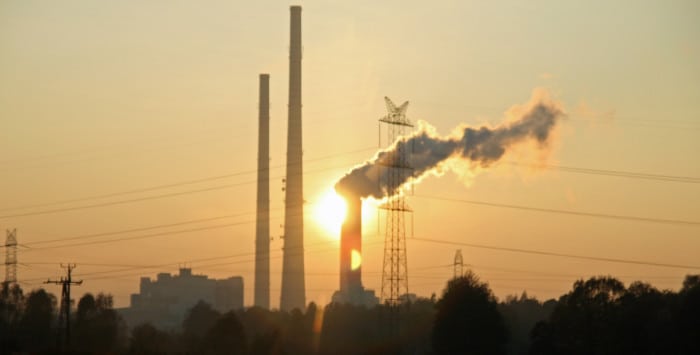
Economists largely agree that a carbon tax is the most efficient way to reduce carbon emissions. The idea has gotten little traction in the U.S. at the national level, as is to be expected with Congress led by the tax-adverse GOP. However, there may be a way to craft such a tax to make it an easier pill for the right to swallow, a panel of experts suggested Thursday afternoon during an event hosted by the Aspen Institute.
“I think that we can sell a revenue-neutral, border-adjustable, carbon tax,” former Representative Bob Inglis (R-S.C.) said. “It’s revenue neutral — we’re going to cut taxes on income somewhere else. It’s border adjustable — we’re going to impose it on imports. And, yes, it’s a carbon tax. … It’s clearly a tax and we may as well be clear about it.”
Inglis was backed up by fellow Republican, Theodore Roosevelt IV, managing director of Barclays Capital Corp. “I think a lot of businesses could go along with a carbon tax,” he said. “It’s very clear how it operates, which is one of the liabilities that cap and trade did have.”
Cap-and-trade, according to Roosevelt, was doomed to fail due to its dependence on markets. Cap-and-trade was proposed in the 2009 Waxman-Markey Bill, which died in Congress in 2009. “If Wall Street was going to be involved, it’s not going to work because people just don’t trust Wall Street,” he said.
The two disagreed on where to go after the implementation of a carbon-neutral, border-adjustable, carbon tax, however. Roosevelt said he views revenue neutral as a first step, while Inglis said a carbon tax would be a non-starter if it wasn’t revenue neutral.
Speaking from the other side of the political spectrum, Heather Zichal, former deputy assistant to President Barack Obama for energy and climate change, agreed in part with the other two panelists, saying the idea of a carbon tax seems to be becoming more feasible. “I don’t think anything is impossible, especially given the kind of conversations we’re having and how many avenues the Republicans have opened up as acceptable discussion and dialogue within the context of a political conversation,” she said.
Zichal, though, also made clear that while a carbon tax would be nice in the future, the potential is not a good reason to stop work in other areas, such as the Environmental Protection Agency’s efforts to regulate carbon emissions. “I … don’t think we’re probably in the realm of getting that done any time in the very near term. … I don’t want to lose some of the important threads that I think came out of today’s conversation … that there are a lot of authorities that the federal government has and will continue to have,” she said.